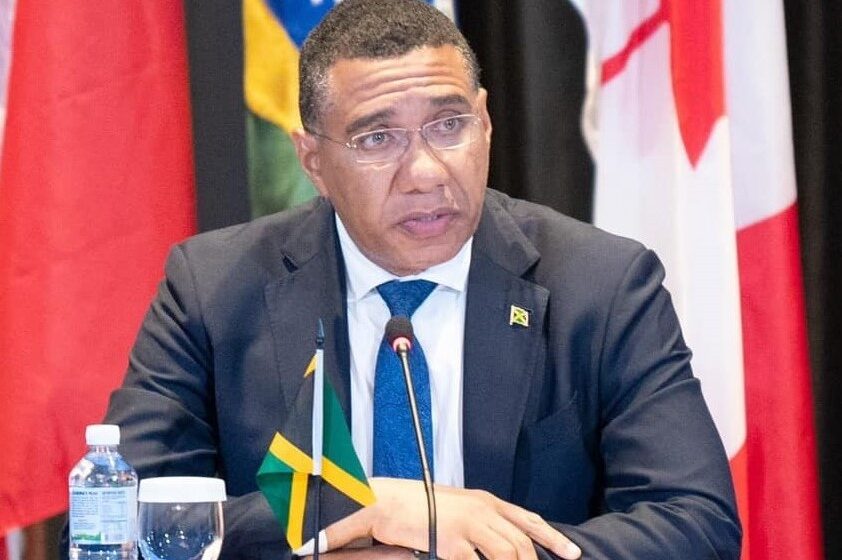What does Andrew Holness’s third term mean for Jamaica’s future?

Andrew Holness wins historic third term as Jamaica’s prime minister
Jamaicans have handed Prime Minister Andrew Holness and the Jamaica Labour Party (JLP) a historic third straight term, following one of the most competitive general elections in recent years.
Preliminary results gave the JLP 34 out of 63 parliamentary seats, narrowly edging out the People’s National Party (PNP), which secured 29. The outcome capped off a campaign that had been too close to call, with late polling suggesting the PNP might clinch an upset victory.
Addressing jubilant supporters after the results, Holness declared the win as a mandate to continue his government’s reform agenda. “Jamaica is on the right path,” he said. “We have the momentum, and we will use it to accelerate development. Tonight’s victory is proof that Jamaicans believe in that trajectory.”
The JLP’s success comes on the back of strong economic and social indicators. During Holness’s two terms, Jamaica has reduced public debt from over 140% of GDP in 2013 to just above 73% in 2024, earning praise from the World Bank. The island also recorded its steepest decline in violent crime in decades, with homicides down by 43% this year, thanks to expanded firearm seizures and a more coordinated security presence.
Still, the campaign was not without controversy. The opposition spotlighted findings from Jamaica’s integrity commission, which flagged inconsistencies in Holness’s financial declarations. The prime minister, however, rejected the claims, citing an independent forensic audit that found no evidence of corruption. “Every detail of my financial life is already in the public domain,” he argued during a televised debate. “I have nothing to hide.”
The election also revealed growing strength within the opposition. Mark Golding, leader of the PNP, added 15 seats compared to the party’s 2020 performance, earning recognition as a resilient contender. Conceding defeat, Golding told supporters that democracy must always prevail, even in moments of disappointment. “It is my duty to acknowledge the will of the people and to congratulate the JLP,” he said.
One shadow over the democratic exercise was the low voter turnout—just 38.8% of Jamaica’s 2 million registered voters cast their ballots, raising questions about political engagement on the island of 2.8 million people. Holness, while celebrating the victory, admitted concern. “We must reflect on this turnout,” he said. “But among those who voted, the people made their choice, and Jamaica has spoken.”
As Holness prepares to enter a rare third term, analysts suggest the challenge ahead will be balancing Jamaica’s promising economic recovery with ensuring greater public trust in governance. The prime minister’s message was clear: his government will not lose momentum.
What does Andrew Holness’s third term mean for Jamaica’s future?
Andrew Holness’s third consecutive term as prime minister marks a pivotal moment in Jamaica’s political journey. Supporters see the victory as a mandate to accelerate economic growth, reduce public debt further, and continue the country’s dramatic progress in tackling violent crime. Yet challenges loom large: low voter turnout has raised questions about civic engagement, while lingering corruption allegations threaten to test public trust in his leadership.
The next five years will be decisive. Holness must not only sustain economic stability but also prove that Jamaica’s democracy can thrive under prolonged one-party dominance. The big question now is whether his government can translate momentum into lasting reforms that touch the everyday lives of Jamaicans.

